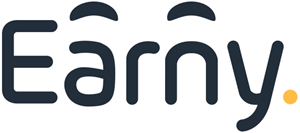Editorial Note: We earn a commission from partner links on Doughroller. Commissions do not affect our authors’ or editors’ opinions or evaluations. Learn more here.
You already do everything from banking to handling your bills via smartphone. So why not use apps that can make you money, too?
The apps to make money listed below generally won’t make you rich any time soon. But many can give you ways to earn just a bit of extra cash. Check them out if you want to earn a little money on the side, often for little to no actual work.
Summary of the Best Money-Making Apps
Yes, there are 30 money-earning apps on this list, but not all of them will be a good fit. Here’s a list of ten that most people will be able to benefit from in different ways:
| Money-Making App | Most Useful (Best for) |
| Capital One Shopping | Saving & Making Money |
| Robinhood | Investing |
| Swagbucks | Completing Surveys |
| Earny | Price Drops |
| Rakuten | Retail Savings |
| Mercari | Used Items to Sell |
| Ibotta | Grocery Shoppers |
| Field Agent | Mystery Shoppers |
| Sweat Coin | Health Aficionados |
| Lyft | Side Hustles |
The 30 Best Money-Making Apps for 2024
1. Capital One Shopping

One of the best savings (and making money) apps is Capital One Shopping. It’s a shopping app that can help you make money in two ways: finding better deals and giving you rewards.
The first is by helping you save money on the products you buy every day. A penny saved is earned, so saving money on a purchase you would make anyway is just as good as making money.
Capital One Shopping has a database of websites that sell products and showcase their prices. Once you install the app on your browser, Capital One Shopping can automatically comparison shop for the product you’re interested in. You can also use the phone app to scan barcodes of products in stores and find local retailers selling the same thing for a better price.
The other way Capital One Shopping can make you money is by giving you rewards when you shop. You can add deals from local merchants and online vendors to your account. When you shop at one of those stores, you’ll get reward points you can redeem for gift cards to popular websites.
Read our Capital One Shopping Review
2. Robinhood (Up to $200 Bonus)

Robinhood is an investing app offering you the opportunity to buy stocks with a $0 trading cost. The beauty of the app is you can invest in partial shares of stock, so if you only have $20 to invest, you can still own part of Google!
The bonus of Robinhood is when you sign up (which is free), you’ll be awarded a free share of stock. This share of stock can range in value anywhere between $5 and $200 (the value of the stock is likely on the low end, but you’ve got a shot for a good one).
3. Swagbucks ($10 Bonus)

We’ve written before about Swagbucks as a way to earn side money. You can make this even easier now by using Swagbucks as an app instead of just on your computer. As with many other apps featured here, this one will notify you when you’re eligible to take surveys or complete other paid tasks.
4. MyPoints ($5 Bonus)

MyPoints is a popular rewards site established in 1996 that offers users the ability to accumulate virtual points in different ways to exchange them for prizes or cash. You can later redeem your points for Amazon gift cards or over 75 other retail and restaurant partners.
5. Worthy Bonds

Worthy Bonds earns a fixed rate of return of 5%, and the cost of the bond is only $10. Buy as many bonds as you’d like and watch as you accrue interest weekly. Bonds have a 36-month term but can be cashed out at any time, without penalty.
6. Public

Public is a social investing app that can build your financial literacy with your friends. Public offers fractional shares of thousands of public companies and ETFs, allowing you to build a portfolio no matter your budget.
Since Public is a social experience, they offer many ways for members to earn free slices of stock (valued up to $10) for referring their friends. Like other apps, each Public member gets a unique share link. Public also makes it possible to share your trades outside the app (even to Instagram stories!), and when you do, and friends join and are approved, you can earn free stock.
You can also earn free stock by inviting friends to chat groups. Once they join and are approved, you’ll also earn free stock for that. The more friends you bring in, the more slices you earn.
7. Acorns ($20 Bonus)

Acorns is a terrific investing and savings app offering $20 after signing up. Acorns can help you track your daily finances, save for the future, and plan an investment strategy that fits your risk profile.
8. Earny

If you use credit cards or retailer apps, chances are some of the items you buy are subject to price protection policies. This means if the price drops within a certain amount of time of your purchase, you get a refund. Earny hooks up with your credit cards to automatically search for price drops and subsequent refunds. The app takes 25% of the refunds it gets you. But it’s still free money.
9. Rakuten

This cash-back app lets you search for rewards, coupons, and promo codes. If you’re a frequent mobile shopper, installing Rakuten can help you save. The app also gives you push notifications about new deals and sales.
10. Google Opinion Rewards

Google Opinion Rewards is yet another survey app that lets you get surveys about once a week. With this app, you get rewards you can use in the Google App Store. The surveys are generally pretty short and can include things like rating different ads.
11. KashKick
Kashkick is a website more focused on playing games and also lets you earn money by watching videos. When you play games on your mobile device and achieve milestones, you earn cash. You can then transfer the cash to your PayPal account.
12. iPoll
iPoll gives you alerts when you qualify to take a paid survey. You can set up your profile ahead of time and then get notifications for surveys for which you qualify. You can also do product reviews, be a secret shopper, or test ads. You’ll get rewards, which you can redeem at iPolls online store.
13. Sweatcoin
Sweatcoin turns your step counter into cash. It tracks your activity and then rewards you with a sweat coin. You can’t turn the digital currency into cash. But you can spend it in the in-app store on goods and services or donate them to charity as cash. It’s an easy way to earn just by walking around.
14. Foap
If you’re constantly snapping photos on your smartphone, Foap could help you make money. You can sell your photos to brands and individuals around the world. You can sell photos you already have in an online portfolio. Or you can go on specific missions to sell photos to brands like Bank of America or Pepsi. Foap lets you cash out your earnings through PayPal.
15. Mercari
Turn your spring cleaning into cash with Mercari. This app-based shop lets you sell everything from toys to clothes. Your listings are free. You just pay a 10% fee when your sale is complete. This is also a great place to buy used merchandise online.
16. Mobee
Want to become a secret shopper? Mobee lets you do it easily. Download the app and then use the map to pick a business. You can complete missions at a variety of retailers and restaurants. You’ll get points for each mission, which you can redeem for gift cards or swag.
17. Offer Up
Offer Up is an excellent way to sell unwanted stuff with ease. Just download the app and then sell pretty much anything. This app is made for local sales of larger items like furniture, but you can also find baby and kid stuff, clothes, electronics, and more.
18. Task Rabbit
If you’re interested in earning money by completing basic tasks and running errands locally, check out Task Rabbit. You can earn money for completing these things for your neighbors and then cash out your money. It could be a good side gig.
19. Ibotta
Use Ibotta when shopping to save with cash-back rebates or earn points for buying your favorite brands. You can also earn by linking your store loyalty cards to the app or sending your receipts to the app after you shop. You can cash in your cash back through PayPal, Venmo, or in the form of gift cards.
Related: Best Game Apps That Pay Real Money
20. Bookscouter
This book app lets you find retail pricing for used books and textbooks. Just use your phone’s camera to snap a picture of the book’s ISBN, and you’ll see what it’s worth online. You can even use the app to create a shipping label for the books you send to Bookscouter. This is a great app if you want to declutter some books, cash in on your used college textbooks, or shop for potentially valuable used books at garage sales and thrift stores.
21. Snapwire
Snapwire is another app that lets you make money from your smartphone photos. This gamified photo-selling app gives you points and lets you level up as you provide businesses with photos. You can use the app to create a portfolio and share photos with whomever you want. You can also get notifications about requests you might be able to fulfill.
22. Decluttr
Decluttr lets you sell specific items that you might have lying around the house. It focuses on CDs, DVDs, and games. You can use the app to snap a picture of the item and get an instant offer for the price. You can ship the items to Decluttr for free and get your money by direct deposit the next day.
23. Checkout 51
Checkout 51 is both a couponing and a cash-back app. It lets you search for and save coupons before you go grocery shopping. Then you can use the app to earn cash back when you purchase your favorite brands.
24. Lyft
As with Uber, Lyft drivers have to apply, and Lyft’s criteria are a bit more stringent. But, still, you can install this app to give rides as you go about your day, which can be an easy way to earn a bit of money on the side.
25. Gigwalk
Gigwalk is geared towards those who want to make a few bucks, but you could also become a full-time Gigwalker. You can use the app’s built-in map feature to find gigs near you. Gigs can include putting together furniture, walking the dog, or running basic errands. Pay and frequency of gigs depend on where you live.
26. Surveys On the Go
Surveys On the Go is another survey app that lets you set up your profile and then take surveys for which you get paid. It lets you rate shopping experiences and products or even review movies or TV shows. You’ll get your first dollar right away when you download the app.
27. Upwork
This is the replacement for the older eLance website. Upwork lets you find gigs similar to the other gig apps mentioned here. But for the most part, these gigs will take place online. You can find work as a virtual assistant, a writer, or a web developer. And you can set up the app to get notifications of job openings and more.
28. Letgo
Do you have more clutter to get rid of? Try Letgo. The app uses image recognition and artificial intelligence to title and categorize items as you list them. You can sell even large items to buyers nearby.
29. Field Agent
With Field Agent, you can get notifications about missions in your area. Your goal is to help companies better serve their customers. You can do this by visiting local stores, shopping for specific products, or taking photos. You can also answer questions or take surveys. You’ll earn cash, which you can receive via direct deposit or Dwolla.
30. Uber
You’ll have to work slightly harder to earn money with this app. Uber driving could be a full-time job if you work it hard enough. For many, though, it’s just a side gig. Consider signing up to drive and then just turning the app on as you go about your day. You might be able to pick up a ride on your way to work or school, for instance, for just a bit of extra money.
How to Make Money with Apps
There are plenty of ways to make money with apps, with some having a more automated process than others. To start, you’ll need to decide which app you want to use and how you want to earn money.
- Cashback – Many cashback portals or shopping browser extensions help you save money on purchases you’ll already make, earning you cash back towards gift cards or straight-up cash.
- Small tasks – Many of these apps allow you to earn money doing small tasks that take a few minutes, such as filling out surveys, watching videos, and even playing online games. Most you can even do while multitasking.
- Larger tasks – Apps like these allow you to set up a profile and advertise your services or choose from a list of gigs you want to get paid for.
- Investing – You can earn money from the amount you invest, which is a pretty passive way to earn money. It doesn’t require a lot of money to start.
Afterward, you simply need to sign up for an account and read through what you need to do to get started. While it might sound a bit boring, reading through their terms and conditions helps know things like how you’ll get paid.
How to Choose the Best App for You
Choosing the best app for you may take some trial and error. First, begin by thinking about how much time you have to devote to the app. For instance, if you’d rather have a more passive option of earning money, perhaps Robinhood, Public, or Capital One Shopping is your best bet, as you don’t have to do much to start getting money from your efforts.
If you have some time to devote and think it might be fun, signing up for an app like Swagbucks or Field Agent allows you to earn up to a few hundred dollars a month without too much effort.
However, if you’re looking to earn more money, going with apps where you can post gigs like UpWork or TaskRabbit is your best bet. That, or invest a larger sum of money in an investment app and let the magic of compound interest work for you.
Scams to Avoid
Sadly, there are scammers out there who will try to pry your hard-earned money from your hands. Remember, if any apps or people are contacting you that require you to pay or spend money for you to earn rewards, run far away. Yes, investing apps will need you to invest money, but you don’t need to pay anything to access your cash. If you’re unsure whether an app is legit, it’s better to be safe than sorry and not sign up for it.
How We Chose the Best Money-Making Apps
We looked through hundreds of apps, evaluating factors such as ease of use, reward thresholds, types of activities, and how long it might take for you to complete tasks. The ones we picked were ultimately the easiest to use, offered great customer support, and helped you earn rewards in exchange for a reasonable amount of time and effort.
Final Thought on the Best Money-Making Apps
There are many ways to make money, and using apps to help you do so can be a smart idea. After all, many of the options on our list are free and don’t require you to spend a lot of time to start receiving perks. Give some of them a chance, and hopefully, you’ll earn a bit of income in no time.

